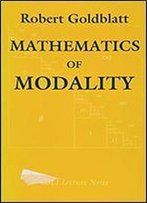
The Calculus Of Variations And Optimal Control: An Introduction (mathematical Concepts And Methods In Science And Engineering)
by George Leitmann /
1981 / English / PDF
12.4 MB Download
When the Tyrian princess Dido landed on the North African shore of
the Mediterranean sea she was welcomed by a local chieftain. He
offered her all the land that she could enclose between the
shoreline and a rope of knotted cowhide. While the legend does not
tell us, we may assume that Princess Dido arrived at the correct
solution by stretching the rope into the shape of a circular arc
and thereby maximized the area of the land upon which she was to
found Carthage. This story of the founding of Carthage is
apocryphal. Nonetheless it is probably the first account of a
problem of the kind that inspired an entire mathematical
discipline, the calculus of variations and its extensions such as
the theory of optimal control. This book is intended to present an
introductory treatment of the calculus of variations in Part I and
of optimal control theory in Part II. The discussion in Part I is
restricted to the simplest problem of the calculus of variations.
The topic is entirely classical; all of the basic theory had been
developed before the turn of the century. Consequently the material
comes from many sources; however, those most useful to me have been
the books of Oskar Bolza and of George M. Ewing. Part II is devoted
to the elementary aspects of the modern extension of the calculus
of variations, the theory of optimal control of dynamical systems.
When the Tyrian princess Dido landed on the North African shore of
the Mediterranean sea she was welcomed by a local chieftain. He
offered her all the land that she could enclose between the
shoreline and a rope of knotted cowhide. While the legend does not
tell us, we may assume that Princess Dido arrived at the correct
solution by stretching the rope into the shape of a circular arc
and thereby maximized the area of the land upon which she was to
found Carthage. This story of the founding of Carthage is
apocryphal. Nonetheless it is probably the first account of a
problem of the kind that inspired an entire mathematical
discipline, the calculus of variations and its extensions such as
the theory of optimal control. This book is intended to present an
introductory treatment of the calculus of variations in Part I and
of optimal control theory in Part II. The discussion in Part I is
restricted to the simplest problem of the calculus of variations.
The topic is entirely classical; all of the basic theory had been
developed before the turn of the century. Consequently the material
comes from many sources; however, those most useful to me have been
the books of Oskar Bolza and of George M. Ewing. Part II is devoted
to the elementary aspects of the modern extension of the calculus
of variations, the theory of optimal control of dynamical systems.











